
While moral universalism correctly demands that we treat everyone with dignity and justice, loyalty demands that we go a step further and make substantial sacrifices for kinfolk and compatriots.



While moral universalism correctly demands that we treat everyone with dignity and justice, loyalty demands that we go a step further and make substantial sacrifices for kinfolk and compatriots.

Shlomo Carlebach would relate an anecdote about his visits to college campuses in the 1970s. After finishing a concert, he would ask the students he met what religion they were. Some would say they were Roman Catholic, while others would say they were Protestant. But other university students would answer his question by saying, “I am a human being.” To which Carlebach would immediately respond: “You must be a Jew!”
The answer these students gave is not at all new, and echoes the words of the ancient philosopher Diogenes who, when asked where he came from, would declare "I am a citizen of the world." This view is even more seductive now that we live in a global village, and what happens anywhere is broadcast everywhere. To identify with one small group feels parochial and narrow.
The Book of Ruth presents a dramatically different view than Diogenes, and offers a seminar on the importance of loyalty, of staying close to those who are closest to you.
The narrative of Ruth begins with an estrangement, a failure of loyalty. During a famine, a man named Elimelech and his family leave Israel and go to the plains of Moab. From later passages in the book, Elimelech's prominence becomes clear; yet during a crisis, he chooses to leave his community behind to find greener pastures for himself. Rashi condemns Elimelech’s behavior and writes: He was very wealthy, and the leader of the generation. He left Israel for a foreign land because of his stinginess, for he was miserly toward the poor who came to beg from him; therefore Elimelech was punished.
Tragedy ensues. Elimelech dies, and his two sons, who then marry Moabite women, die as well. Naomi, Elimelech's widow, decides to return to the land of Israel and to her hometown of Bethlehem. As she leaves, Naomi is accompanied by her two Moabite daughters-in-law, Ruth and Orpah. Midtrip, Naomi stops and implores her daughtersin-law to return to their parents' homes because there's no future for them in Israel.
Orpah accepts her mother-in-law's advice, and tearfully bids her farewell. But Ruth refuses to go. She remains at Naomi's side, even though her mother-in-law has excused her and exhorted her
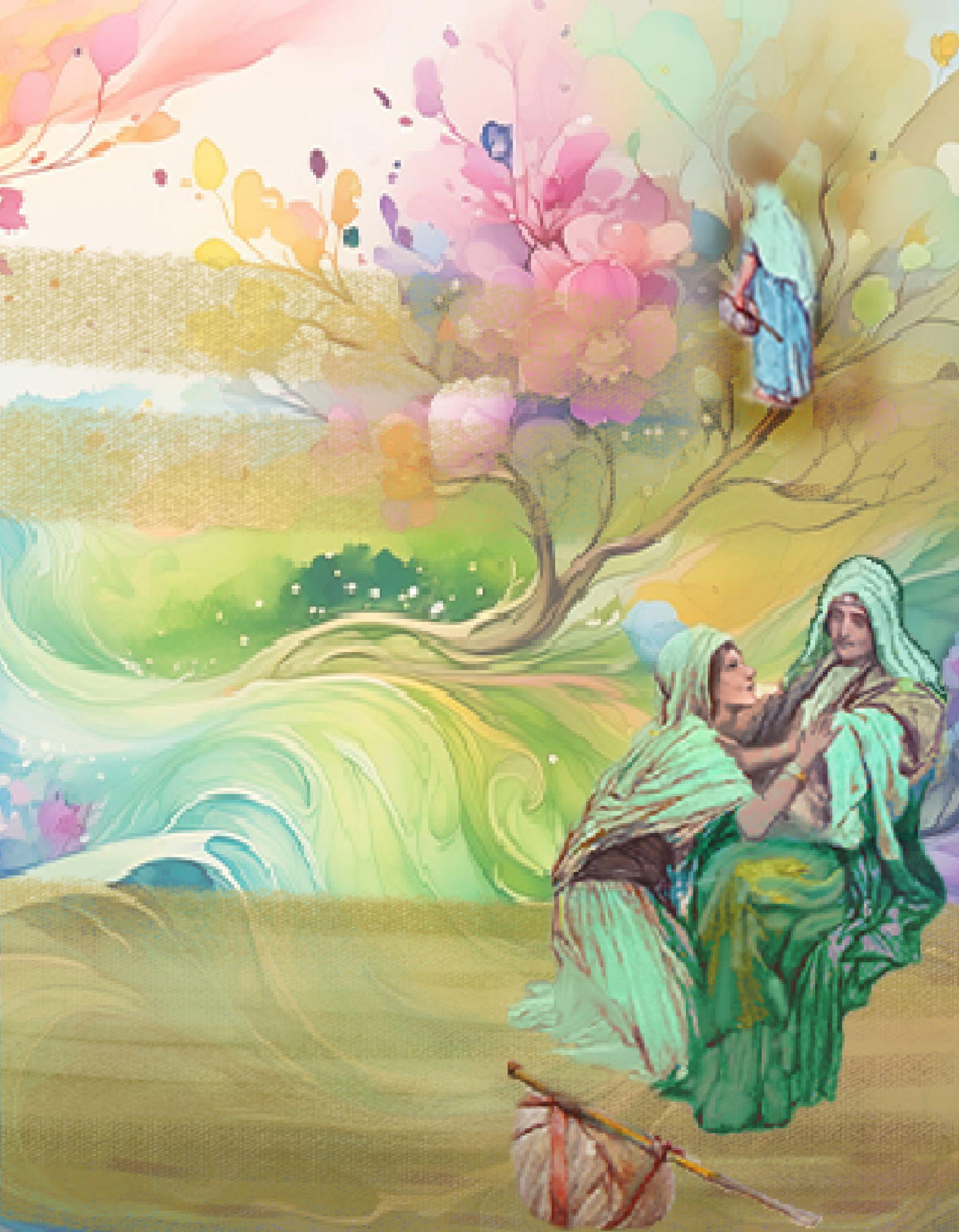

to leave. In two short sentences,(Ruth 1:16-17) Ruth expresses a profound depth of loyalty: Don’t urge me to leave you or to turn back from you. Where you go I will go, and where you stay I will stay. Your people will be my people and your God my God. Where you die I will die, and there I will be buried. May the Lord deal with me, be it ever so severely, if even death separates you and me.
In a comment that further highlights the theme of loyalty, the Midrash finds fault in Orpah's behavior. It connects her name to the Hebrew word oreph, the back of the neck. In the Midrash's view, Orpah is too quick to turn her back on Naomi, especially when her own sister-in-law continues forward.
Ruth's loyalty to her mother-in-law is all the more remarkable considering that she is a Moabite, from a nation that descended from Lot, Abraham’s nephew. Lot and Abraham share the journey from Aram to Canaan, then to Egypt and back. They are truly like brothers. But then they separate over a business dispute.
This separation grows deeper with time. After the Exodus, when the Jews are journeying from Egypt to the land of Israel, the Moabites refuse to offer them water and even engage Balaam to curse the Jews. Ruth's lineage is from a nation who have turned their backs on Abraham’s family, which makes Ruth’s loyalty all the more remarkable.
The conclusion of the Book of Ruth is intertwined with two legal institutions that obligate relatives to help out their kin. One is yibum, the levirate marriage. When a man dies childless and leaves behind a widow, the brother of the deceased has an obligation to continue that man's name and marry the widow. Marrying the widow to a family member (who then has children with her), ensures that the deceased brother will always be remembered, and his name will be carried on. (In the Book of Ruth, this legal institution is extended to include a close relative, Boaz, as well.) The second institution is the redemption of a field. The Bible explains (Leviticus 25:25) that If one of your fellow Israelites becomes poor and sells some of their property, their nearest relative is to come and redeem what they have sold. This repurchase carries profound significance. In an agrarian society, identity is rooted in the land itself, which is transferred from generation to generation; when relatives repurchase these fields and return them to impoverished members of their family, they have returned them to their roots and given them dignity.
Both of these legal institutions are founded on the importance of loyalty, and reflect the unique obligations one has towards a close relative.
In the final chapter of the book, two men are confronted with these obligations: Boaz and Ploni Almoni (a pseudonym that means "anonymous"). They are the ones who must redeem Naomi’s fields, and marry her widowed daughter-in-law Ruth. The anonymous Ploni Almoni is given priority because he is the closest relative; but he refuses, saying (according to the interpretation of Ibn Ezra and Ralbag) that he's worried about a cash crunch, that if he acquires the new field he won’t have enough money to hire workers for all his properties.
Ploni Almoni puts his individual needs above his responsibility to his kin; and he remains anonymous

to history, like a faded flower, like whirling dust. It is Boaz, who is loyal to his family and community, who together with Ruth becomes the foundation of the house of David, and the future of the Jewish nation.
The Book of Ruth’s emphasis on the obligations of loyalty contrasts sharply with a staunchly universalist ethic, which sees preferential love for a particular community as narrow and self-centered.
While moral universalism correctly demands that we treat everyone with dignity and justice, loyalty demands that we go a step further and make substantial sacrifices for kinfolk and compatriots. The moral argument for loyalty is grounded first in reality; to care about everyone is to care about no one in particular. Without preferential love, even basic relationships are impossible. Richard M. Hare pointed out that, even for universalists, If mothers had the propensity to care equally for all the children in the world, it is unlikely that children would be as well provided for even as they are. The dilution of the responsibility would weaken it out of existence. But the Book of Ruth goes further, well beyond a pragmatic acceptance of loyalty; instead, it celebrates the spiritual power of commitment.
Rabbi Dr. Samuel Lebens, in his book A Guide for the Jewish Undecided, sees Ruth's conversion as a paradigm of authentic Jewish belief. Our identities always shape our perspective, or as Lebens puts it, “It is what makes reasoning possible to begin with.” He points out a fascinating contrast between the conversion of Ruth (the only one found in the Tanakh) and the conversion of Paul in the New Testament. As it is described in the

Book of Acts, Paul comes to Christianity after he sees a grand vision on the road to Damascus, and suddenly the scales fall from his eyes. In contrast, the conversion of Ruth is founded on personal connection and familial love. On the road to Bethlehem, Ruth perseveres in her love for Naomi; and that draws her close to God and the Torah. It is her decision to commit to the Jewish people that transforms Ruth.
Faith grows out of our commitments, which is why the Book of Ruth is read on Shavuot. At the foot of Mount Sinai the Jews pledged naaseh v’nishmah, “we will do and we will listen.” In other words, the Jews were pledging to loyally follow God, and by doing so, understand the spiritual value of the Torah. Enlightenment is the product of one's commitments. And so it was with Ruth. But like the Carlebach's college student, many young Jews find loyalty to be difficult. They have grown up in what psychologists call a WEIRD culture: Western, Educated, Industrialized, Rich, and Democratic, which, as Jonathan Haidt explains in The Righteous Mind, devalues loyalty. Calls for loyalty are often met with suspicion and derision. Even some young rabbis struggle with loyalty; they will dither in response to terror attacks and conflict in Israel, worried more about political implications than personal commitments.
It is not surprising that as the Jewish community becomes more immersed in a WEIRD culture, loyalty has diminished, as well as our community’s connection to Judaism and the Jewish people. But on the road to Bethlehem, Ruth chooses loyalty. And that has made all the difference.


(originally delivered by Rabbi Roy Feldman at KJ on Parashat Behar, May 25, 2024)
At the annual conference of the Rabbinical Council of America, I had the opportunity to hear Rabbi Leo Dee speak. About a year ago, before the current conflict, his wife and two of his daughters were tragically and brutally murdered by terrorists. He shared poignant stories about his family’s life in Israel. One particular point stood out: after high school, his daughter participated in Sheirut Leumi, a voluntary national service alternative to serving in the IDF, primarily for young women. They volunteer in schools, hospitals, nursing homes, and other institutions, contributing significantly to Israeli society. After one year of service, Rabbi Dee encouraged his daughter to start college. She responded, “Abba, here, everyone does at least two years of Sheirut Leumi!” In Israel, the norm is to volunteer for national service for at least two years, and it is something everyone aspires to do. This is similar to military service, where the entire country, with some exceptions, serves in the IDF. Doing so is both an honor and a fundamental part of being Israeli.
Elazer Stern, a general in the IDF and Head of Human Resources, recounted an experience that highlights this ethos. He encountered a woman pushing her disabled son, who was wearing an IDF uniform, in a wheelchair to her car. Stern thanked her for bringing such a soldier. She replied, “I’m the one who should
thank you for accepting my son into the army.” Her son, disabled from childhood, could have easily received a medical exemption but chose to serve. This story underscores a fundamental principle in Israeli society: everyone is in this together, and everyone does their part. There is societal pressure to serve, and those who don't are viewed differently than those who do.
Parashat Behar describes Shemitta and Yovel, the Sabbatical and Jubilee years. Every seven years, the land is to lie fallow, and every fifty years, land is returned to its original owners and all slaves are set free. In that year, the Torah tells us,
" – "Then you shall sound the shofar; in the seventh month, on the tenth day of the month—the Day of Atonement—you shall have the horn sounded throughout your land." The shofar is typically sounded as a sign of judgment on Rosh Hashanah and in the Beit HaMikdash on fast days; judgment is not a theme of Yovel Why sound the shofar everywhere that day?
The Sefer HaChinuch, a medieval work that identifies and explains the 613 commandments in the Torah, explained that the shofar is needed due to the challenging nature of this mitzvah. The sound of the shofar is to arouse the hearts of all people—whether for peace or for war. And the matter of sending away the slave that served his master a long time is very difficult in the eyes of the master. Therefore we were commanded about it to arouse the hearts of people about the matter — to strengthen their souls when they hear the sound of the shofar, as they become aware that it is the same in the whole land and that everyone [releases their slaves]. As there is nothing that strengthens the hearts of people like the action of the many.
There would be a strong temptation, he implies, to ignore the mitzvah of freeing slaves in a Yovel year. The shofar's sound reminded everyone that all across the land, all slaves were being released, creating a feeling of peer pressure to ensure the mitzvah of Yovel was fully observed. Peer pressure often has negative connotations, conjuring up memories of trying to fit in as teenagers or keeping up with societal expectations. On college campuses we have seen the detrimental effects peer pressure can have as it has led students to turn out in droves in support for evil causes that they do not really understand.
Jonathan Haidt, in his book The Anxious Generation, discusses how peer pressure compels young children to insist on having smartphones and social media accounts to avoid social exclusion. “Once a few students get smartphones and social media accounts,” he wrote, “the other students put pressure on their parents. It’s painful for parents to hear their children say ‘everyone else has an iPhone…If you don’t get me one, i’ll be excluded from everything.’ … Few parents want their preteens to disappear into a phone, but the vision of their child being a social outcast is even more distressing…As more parents relent, the pressure grows.”
The Sefer HaChinuch highlights an important perspective: peer pressure can be positive when the social norm is constructive. If the majority disregarded the mitzvah of Yovel, it would demand exceptional righteousness to be among the tzaddikim who free their slaves. The sounding of the shofar served as a communal reminder that everyone was participating in this challenging mitzvah together, providing the collective encouragement needed to do the right thing.
Numerous studies have demonstrated the positive impact peer pressure can have when channeled for good. In one study, about 200,000 households received reminders to vote. Some received a simple reminder, while others received a reminder along with a list of their neighbors' voting records, implying that their neighbors might find out if they did not vote. Unsurprisingly, the second group had a significantly higher turnout, much more than any other canvassing or phone call campaign. “Nothing strengthens the heart like the actions of the many.”

Haidt emphasizes that parents and communities can collectively change social norms. This cannot be done individually; it requires a united effort. For instance, a child can’t be the only one not included in a group chat that plans after-school activities. However, if the entire community decides that 10-year-olds should not use phones, it becomes the socially acceptable standard. The same principle applies to chessed (kindness) and tzedakah (charity). People are motivated to do more and give more when they see others doing the same. We have seen this play out in the last months throughout this war. Seeing the large amounts of supplies collected and the generous donations made by others inspires similar actions. There's something profoundly motivating about witnessing collective goodwill. Nothing strengthens the heart like the actions of the many.
I recall being astonished the first time I attended Shacharit on a weekday in a particular modern orthodox community; the synagogue was nearly as full as it would be on Shabbat. Regardless of individual motivations, it was clear that in that community, attending Shacharit on weekdays was the norm. This was “ the action of the many” that encouraged everyone to participate.
The social norm of service and volunteerism is one of the most inspiring aspects of Israeli society. The collective commitment to serving and helping others has sustained the country for decades. Positive peer pressure can encourage our communities too to uphold good values, moral behavior, and religious ideals. May our community be one in which through our actions we encourage one another always to do good and to grow in our commitment to God, Torah, and Am Yisrael.


If the past few months have taught us anything, it is that some grow louder in the face of loss and others quieter. Grief looks different on each one of us.
In Megillat Ruth, the text we read on the holiday of Shavuot, we find a powerful affirmation of different forms of grief. They are especially resonant now as we feel the outpouring of the Jewish world’s anger, fear, and mourning in the still-echoing wake of unprecedented attack, of war we never wanted, of lost and stolen loved ones.
Megillat Ruth opens with introductions but quickly turns to obituaries of its male characters, Elimelech, Machlon, and Chilion. Left behind were the wives of these figures: Naomi, Ruth, and Orpah. These losses presented a quandary: what should a bereaved widow and her two daughters-in-law do in their aftermath?
Naomi decided to return to her hometown. She urged her daughters-in-law to return to their own Moabite homes: “Turn back, each of you to her mother’s house!” Ruth and Orpah wept; argued.
“My lot is far more bitter than yours,” explained Naomi, “for the hand of the LORD has struck out against me.”
Many deeply grieving people feel like Naomi did, like the shell of a person. In the text, Naomi alluded to the emptiness of her womb — the inability to bear another child — a life with no lineage. Her maternal identity disintegrated, devastating her hopes of continuity. Later she renamed herself Marah, bitter. All she saw in front of her was barren.

Orpah left — another response to grief: departure, leaving behind the reminders of the pain. She turned when she experienced loss, away from the only people who might truly understand.
Like Naomi, Orpah went back to what she knew: her family and faith.
Only Ruth went toward something new.
Ruth responded to grief by tightening her grip — “wherever you go, I will go; wherever you lodge, I will lodge; your people shall be my people, and your God my God. Where you die, I will die, and there I will be buried.” While Naomi’s grief turned her bitter and Orpah left in the face of loss, the bereaved Ruth burns with purpose.
This is a third form of grief. Ruth cleaved to her mother-in-law, intent on making her pain easier to bear. In shouldering her mother-in-law’s grief, Ruth internalized her own pain.
We don’t know how Orpah fared back in Moav with her grief. We can’t know what her recovery looked like. Some figures say she was promiscuous upon her departure from Naomi and Ruth. Orpah parted from those who would share grief with her and experienced it alone. If indeed she was promiscuous, perhaps it was to fill the void left by loss.
Ruth’s compassion ultimately made her a worthy wife and mother, and she was provided for in all the ways she provided for Naomi. What we can recognize as internalized grief makes it difficult to ascertain if Ruth ever healed from her loss. But there is a small textual hint.
At the end of Megillat Ruth, there is a small scene in which Naomi embraces Ruth’s child, taking the child from Ruth’s arms, holding it to her own chest. This textual aside provides context: Ruth, who we know held her loved ones close in her pain, allowed someone else to hold her child. In Ruth’s grief we saw her cling, but perhaps her recovery allowed her to let go.
Naomi’s recovery from her grief is most apparent within the text. Women close to Naomi — a support system — rejoiced when Ruth bore a son. The women told Naomi, the same Naomi who once called herself empty, that the child would “renew” and “sustain” her. The child filled Naomi’s barrenness, the void she saw within herself.
And the women did not refer to her as Marah. They called her Naomi.
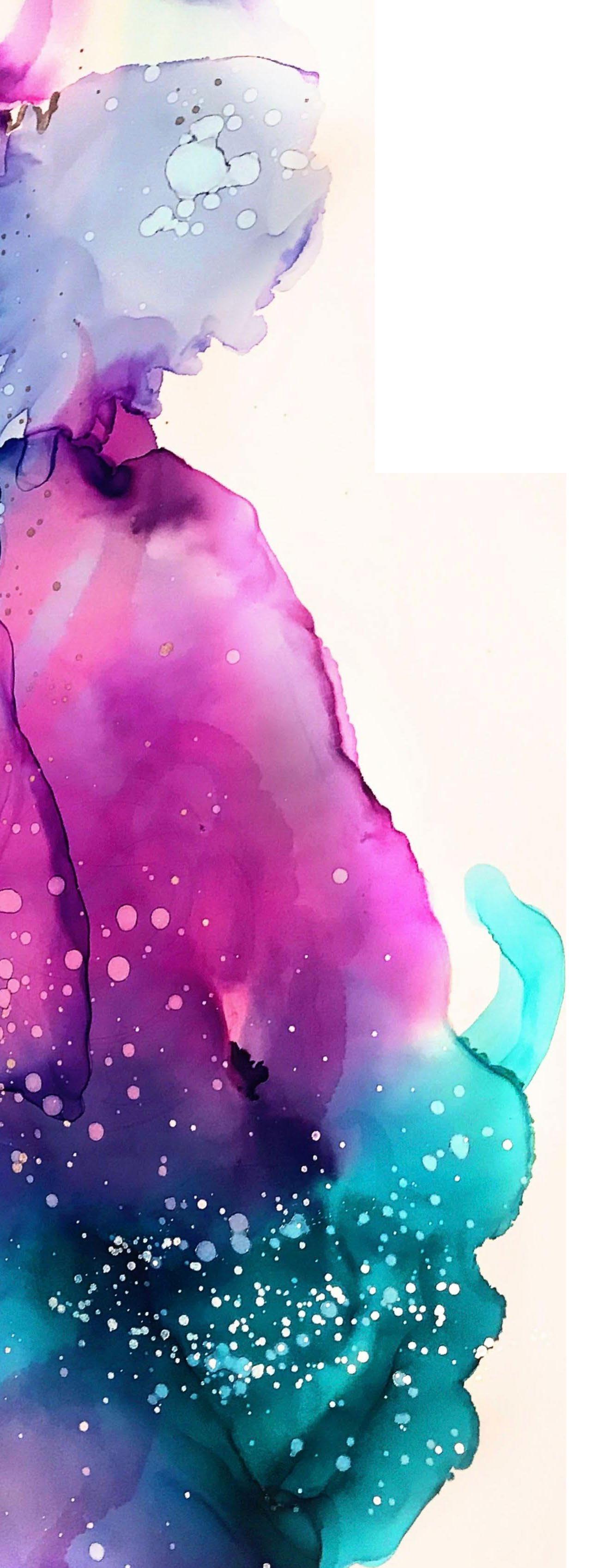







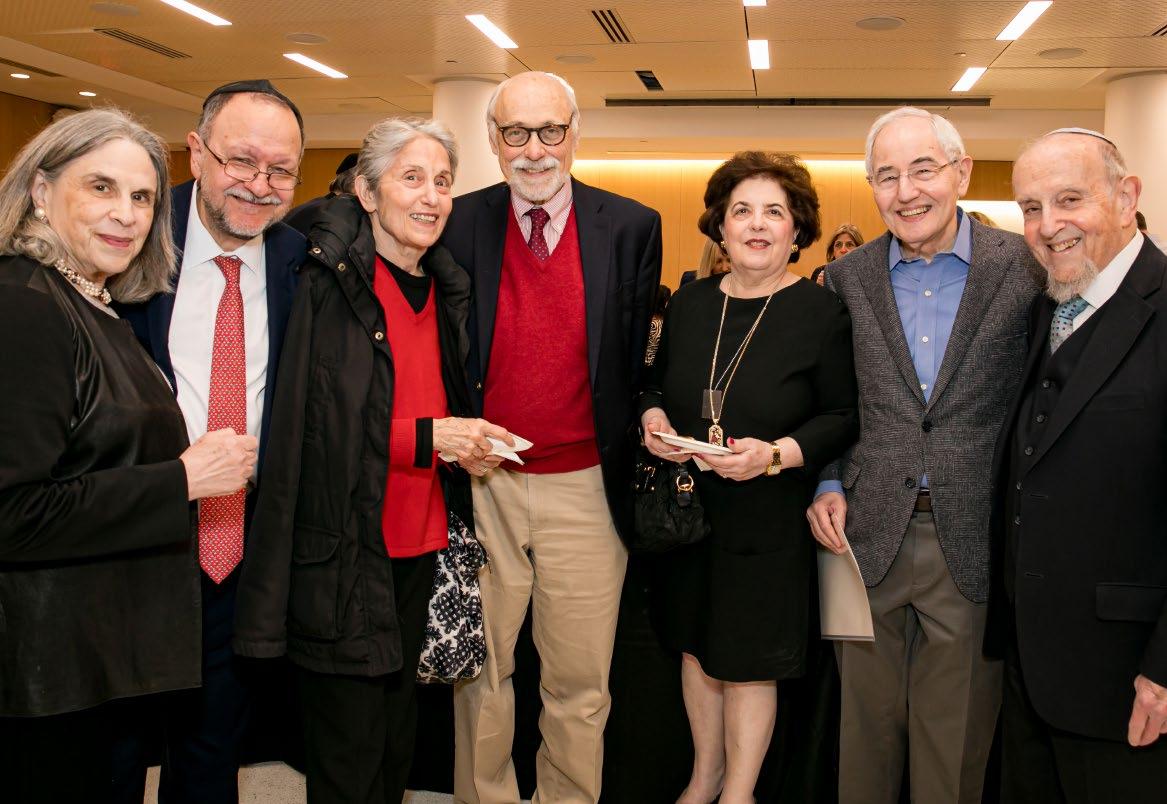





As I have noted every year at the Annual Meeting since I began my term, I am very humbled to serve in this position. My predecessors, one of whom is here, set a great example of service to the community. I note the
On October 3, I began a three-week trial in Virginia. I was pleased to hear from the Judge on the first day of trial that we would not be sitting for trial that Friday, October 6. I was happy for two reasons. First, I could go home to Phyllis and family for Shemini Azeret and Simchat Torah. And second, I could attend Hoshana Rabbah services at KJ early Friday morning. At many synagogues, Hoshana Rabbah is an afterthought following Rosh Hashanah, Yom Kippur, and the first days of Sukkot. Not at KJ. If you've never been to Hoshana Rabbah services at KJ, you are missing something special. At 6:30 in the morning, the Main Synagogue is packed with hundreds of worshipers who bring their lulavim and etrogim and participate in a service led first by Evan Farber, and then Rabbi Lookstein, both dressed in kittels. And using the High Holiday nusach. When the service concludes two hours later, we go upstairs to the sukkah, where something called the President’s Breakfast is served. Does anyone know why it's called the President’s breakfast? Well, I’m the President and I don’t have the slightest idea. I didn’t conceive of it, and I don’t pay for it. I just show up. Everybody thanks me for the breakfast –and I’ve done nothing. I sat at a table with Rabbi Lookstein, Larry Kobrin and Larry Kobrin’s granddaughter, Mark Goldstein and a couple of other congregants. And everything was great. I couldn’t be looking more forward to the next two days, Shemini Atzeret and Simchat Torah, when among other things we’d be honoring as Hatanim three members of our Sephardic community.
And then the next day was October 7 and we all know what happened.

Everything is different now. We face a challenge in dealing with a situation unlike any we’ve faced since at least 1973, and probably since 1948. At the same time, we have to continue with the Synagogue’s business as usual, doing all the things that make KJ special. This presents a challenge, one that we have been dealing with every day since October 7.
When I became President two years ago, I said that our goals should be, first: returning members to the Synagogue after Covid. And second: serving the needs of both our community and the broader Jewish community – as KJ is a leading, if not

the leading, Modern Orthodox synagogue in the country.
I am pleased to report that our membership has largely returned, both in terms of numbers and in terms of engagement. If you come to KJ on a Shabbat or on a Chag, our services are full. And it’s not just one service as it was 40 years ago – it’s seven different services! We run a full set of programs, from classes to speakers to special events on Shabbat and during the week.
Just this past week, and weekend, we hosted events with famous columnist Bret Stephens, guest Chazan Yaakov Stark - alone and in duets with Cantor Berson; Avi Mayer, the former editor of the Jerusalem Post; and Barry Rosen — an American Embassy hostage who was held in Iran for 444 days in 1979-1980—and his wife.
In terms of KJ’s role in the Modern Orthodox world and beyond, we should be proud of the way that KJ has stepped up in response to October 7—at the clergy level, at the officer and trustee level, and at the membership level.
But this is not a time for pats on the back.
UJA in the 1970’s used to have a saying, “Around the corner and around the world.” Today, what’s happening in Israel and around the world reverberates here, in New York, on college campuses, on the Upper East Side, and at KJ itself. From the very first day, on October 7 itself during services, everything changed.
At the clergy level, it starts with Rabbi Lookstein, whose clarity of moral purpose has been on full display. One cannot begin to explain the outpouring of activism at all levels here without taking note of the foundation that he built at KJ and also at Ramaz. It’s a legacy of activism dating back 60+ years. We are grateful for his guidance on a personal level and at the community level.
In advance of this evening’s meeting, I went back and listened again to Rabbi Lookstein’s Zoom program on October 10—“What We Must Do Now.” He set out five steps: Stay informed; reach out to Israelis on a personal level; provide financial assistance; attend rallies; and daven. Measuring KJ’s performance against that standard, I believe we have done all those things.
Stay informed: We all turn to Israel news first. There are constant communications from the Synagogue concerning Israel. There is robust Israelrelated programming at KJ, often in partnership with other synagogues. There are musical programs led by Cantor Berson; programs with hostage families; Men’s Club Kiddush Discussions; high profile speakers, including New York State Governor Kathy Hochul, Congressman Ritchie Torres, Bret Stephens, and Barry Rosen. And we have our own mininewspaper covering the Israel beat, Artzeinu.
Reach out to Israelis —all of us have done so on a personal level. The shul ran two dedicated solidarity missions plus Pesach in Israel-- as the shul
has done for over 30 years. We have heard presentations from hostage family members. We twice heard presentations at Seudah Shlishit from survivors of the Nova Music Festival massacre —among the most gripping addresses I’ve ever heard at KJ.
Financial assistance: Members have contributed many millions to UJA. We have made substantial contributions to Israeli causes and otherwise through the Benevolent Fund.
Rallies, showing up. A rally was held the very first week; and this past week we participated in a rally at the U.N. In between was the massive rally in Washington—which was KJ at its best. This was perhaps the most important rally of our lifetime. At least as important as the Soviet Jewry rallies of the 1970’s; the 1987 rally for Soviet Jewry; and the 2002 rally in Washington during the second intifada.
KJ sent 11 buses of approximately 50 people each—so over 500 people just on the buses. Others attended by planes, trains and automobiles. Together with Ramaz, over a thousand people from our community attended. And at the rally it was Cantor Berson who sang the prayer for Chayalei Tsava Haganah LeYisrael. I told him that it was the largest concert in America since Woodstock in 1969. The staff, led by Lenny Silverman and Riva Alper, deserve a lot of credit. I arrived early for the 5:40 a.m. minyan that day, and Lenny had already been at work for a long time that morning organizing our caravan.
I can’t say enough about Rebecca Feit, Yaira Singer, Jodi Weinstein and Alissa Shams, who are responsible for our Whatsapp Israel Action Group, and also our Whatsapp Israel Legal Action Group. They notify us every day of steps that we can take to help Israel and to combat anti-Semitism here and around the world.
Davening: Services have taken on new meaning with the addition of prayers for the hostages, Avinu Malkenu, and Psalm 121. The hostage display in the Main Synagogue could not be more moving—a constant reminder of their plight. Community, and community prayer, are more important than ever during this difficult time. I try to speak with every new KJ member when they join the shul. Several have told me that October 7 was a major reason for joining our community.
Rabbi Steinmetz has mobilized the community from the very first day in shul on October 7, through today. He has led several missions to Israel. He has shown great and courageous leadership, both in word and in deed.
The same is true of Rabbi Feldman, who also traveled to Israel on our very first mission in November.
It’s a tragedy that we have had to step up in this way. But we have stepped up in a big way. Am Yisrael Chai! * * *
At the same time, at some level we have to continue business as usual. We need to show up to programs and to shul, and to continue to contribute to the Annual Synagogue Appeal (“ASA”). We cannot cut back on support for the Synagogue. This year, we are revamping the ASA to more evenly distribute the responsibility of the solicitations among the laity and clergy instead of the clergy shouldering the weight by themselves.
We have to give more to the Benevolent Fund, both for the needs in Israel and also to serve the needs of our members.
On money issues: a dues increase is unavoidable. After keeping increases well below inflation rate for years, we have run a deficit last year and will do so this year. The deficits in my view are at unacceptable levels. Against this backdrop, it would be irresponsible not to raise dues and yet KJ still has among the lowest dues of any comparable synagogue on the Upper East or Upper West Side, even with the increase.
We are also raising the security assessment this year by $150. This increase, too, is absolutely essential. The increase will cover most but not all of our day-to-day increased security costs occasioned by October 7. But we really have no choice, for obvious reasons. We just cannot skimp on security.
We have made major improvements in security, starting with our retention of Mamadou Deme as KJ Director of Security, complementing his parallel position at Ramaz. We’ve made changes to day-to-day security operations, and are also undertaking several capital improvements at the request of Ramaz School, including replacing the 8 wood doors at the front of the Synagogue. We have also applied for security grants from the state, but securing those grants is a slow process.
Thank you to Eric Gribetz who has shown so much dedication and insight as Chair of our Security Committee.
I regret that we have to spend so much on security. As Rabbi Steinmetz has noted, it’s akin to an anti-Semitism tax. This is our post October 7 world.
A word about our many services:
There have been changes in the Beginners program led by the Krauses that have been productive, including Friday night Holy Hour Happy Hour, with hundreds of participants coming together each week in a program run together with Chabad.
Kesher continues to thrive. As does our Youth Program, led by Ruthie Hollander. We have more children than ever here on Shabbat. They and Kesher are the future of the shul.
The Sephardic minyan service and community have blossomed through the leadership of Rabbi Laniado-along with Benny Zalta and Charles Zami. With Sephardic and Ashkenazic services continued ----->

under the same roof, we are a model of cooperation and synergy. We honored members of the Sephardic community this past Simchat Torah as our Hatanim. We would have convened the Annual Dinner in their honor to celebrate their upcoming “Bar Mitzvah” anniversary marking 13 years since their founding, but we were pre-empted by October 7. We instead ran a more appropriate, Israel-themed dinner, under the leadership of Chazan Berson.
The Main Synagogue service is still the mainstay of the shul. After all these years, it’s still a dignified service despite no longer requiring jackets and ties, and the minimal talking one experiences is rare among large congregations. We’ve had special programs, including the Hamptons Choir and guest chazanim, but there is no one better than our own Chazan Berson.
Thank you to our outstanding clergy, starting with Rabbi Lookstein, who has set an example for both his fellow clergy and for us for 66-plus years. Thank you to our senior Rabbi, Rabbi Steinmetz, who will soon be starting his tenth year at KJ. Rabbi Feldman, Rabbi Laniado, the Krauses, Chazan Berson, Benny Zalta, and Charles Zami—KJ boasts a Clergy that is second to none.
I’d also like to thank our staff led by Lenny Silverman and Riva Alper, and our Chief Financial Officer, Sy Yanofsky. Thank you Superintendent Freddie Rodriguez for your hard work that is performed with so much love and dedication. Thank you to our staff, Esther Feierman, Dina Farhi, Yael Haller, and our youth director Ruthie Hollander. I see what goes on behind the scenes—all are working together with great dedication for a common goal.
I’d like to thank my fellow trustees and also the officers: Ken Eckstein, Robyn Barsky, Larry Baruch, Phil Wilner, Jon Stern, Sidney Ingber, Richard Cohen, Adam Weinstein, Wendy Greenbaum, Nicole Agus. Yaira Singer, Rebecca Feit, and Eric Gribetz. They are my mainstay.
Robyn Barsky is retiring as an officer. She did an exceptional job in the midst of Covid serving as co-chair with Nicole Agus for our Return to KJ Committee. She gave me good advice in our many meetings and telephone calls. I am pleased that Jen Yashar is joining as an officer.
Finally, thanks to all of you here, our members. Without you and your generosity and participation, we would be nowhere-- and KJ wouldn’t be what it is today.
It is very gratifying for me to see our dedicated clergy and staff, officers, trustees and members, all working together for the benefit of the community.
* * *
I know there will be a time when we can look back and say, we did the right thing. We stepped up during a dark time for us and our brothers and sisters in Israel. As Rabbi Lookstein said during the program on October 10, “We have to hold on to our hope and expect a better tomorrow...” Hashem li vilo irah.
With that, I conclude the president’s report. Thank you.

Completed is this Annual Synagogue Meeting according to its law, according to all its judgements and statutes.
Just as we have merited to have order in our congregation: programs and speakers, scholars and cantorial guests, sephardic ski trips and kesher nights out, and order in our physical lives, our children went to school, we went to work and participated in our various activities, so too may our entire people have order in their lives very soon. May the families of hostages soon go on trips with their loved ones whom they haven’t seen or heard from in six months; may the families of members of the IDF and those in reserved have nights out with their brave fighting sons, daughters, husbands and wives, mothers and fathers. May the thousands of Israelis who have mobilized to volunteer for this holy war soon experience a great victory for Israel and terrible defeat for Hamas, and return, too, to their normal lives, and may all the Jewish people have order and regularity in our spiritual lives.
Eternal God,
Raise up the spirits of your community, who can count them? Who can count the countless acts of chessed, bikkur cholim (visiting the sick), nichum aveilim (comfourting the bereaved), that we do here and that we have done on our missions to Israel, the countless dollars of tzedakah that we have given, the countless tefillot that we have offered. We have done our part, Avinu Malkeynu our father our King, please respond.
Bring near the day when You lead the stock that you planted,
redeemed, free, safe, victorious in our state in our land
Psalm 137

“IF I FORGET THEE, O JERUSALEM, LET MY RIGHT HAND FORGET HER CUNNING.
IF I DO NOT REMEMBER THEE, LET MY TONGUE CLEAVE TO THE ROOF OF MY MOUTH IF I DO NOT RAISE JERUSALEM ABOVE MY GREATEST JOY.”

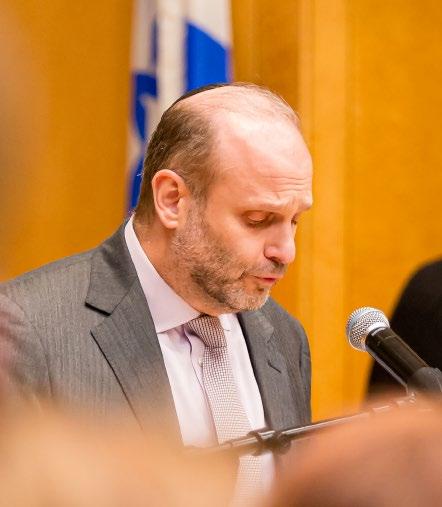 by Rabbi Chaim Steinmetz, Senior Rabbi
by Rabbi Chaim Steinmetz, Senior Rabbi

For 152 years, while dwelling on the banks of the rivers of Manhattan, our congregation, Kehilath Jeshurun, has never forgotten Jerusalem.
Beginning in the 1920s and 30s, we were there for Israel, when the Ramaz was a prominent leader of Mizrachi.
And for all the years since: from 1948, to 1967, to 1973, to today,
Both in good times, and in bad times,
Our congregation, and our Rabbinic leaders, have always been the first to stand with Israel.
For the last 6 months Israel has been under attack.
And we at KJ have once again been the first to stand up for Israel.
We have given with our hearts, and given again. We have written letters, lobbied Congress, gone to rallies, and traveled on missions. On an almost daily basis we have had speakers about Israel, and visitors from Israel.
“IF I FORGET THEE O JERUSALEM,” THE EXILES IN BABYLONIA CALL OUT. AND AT KJ, WE HAVE KEPT THAT PROMISE, and we have not forgotten.
Even as we go forward for the next six months and the next six years,
Even as fatigue sets in,
Even as the interest of some will fade,
We at KJ will continue to stand by Israel, and be the first to do so.
We will always remember Zion.
May God free the captives, heal the wounded, and comfort the brokenhearted, and may we all rejoice in the return of peace and security to our beloved Israel.
Amen.

Monday May 13
THERE'S NO PLACE QUITE LIKE ISRAEL TO HONOR Yom HaZikaron AND CELEBRATE YOM HA'ATZMAUT.
However, for those who couldn't be in Israel, KJ proved to be the next best destination. This year's transition from remembrance to celebration brought together multiple neighborhood synagogues in an outpouring of unity and purpose.
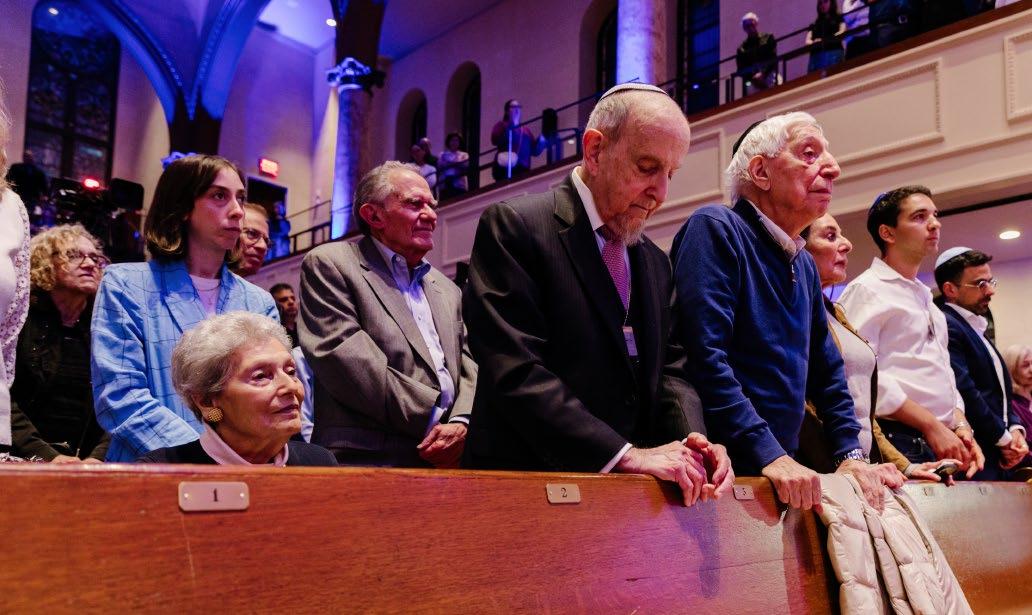


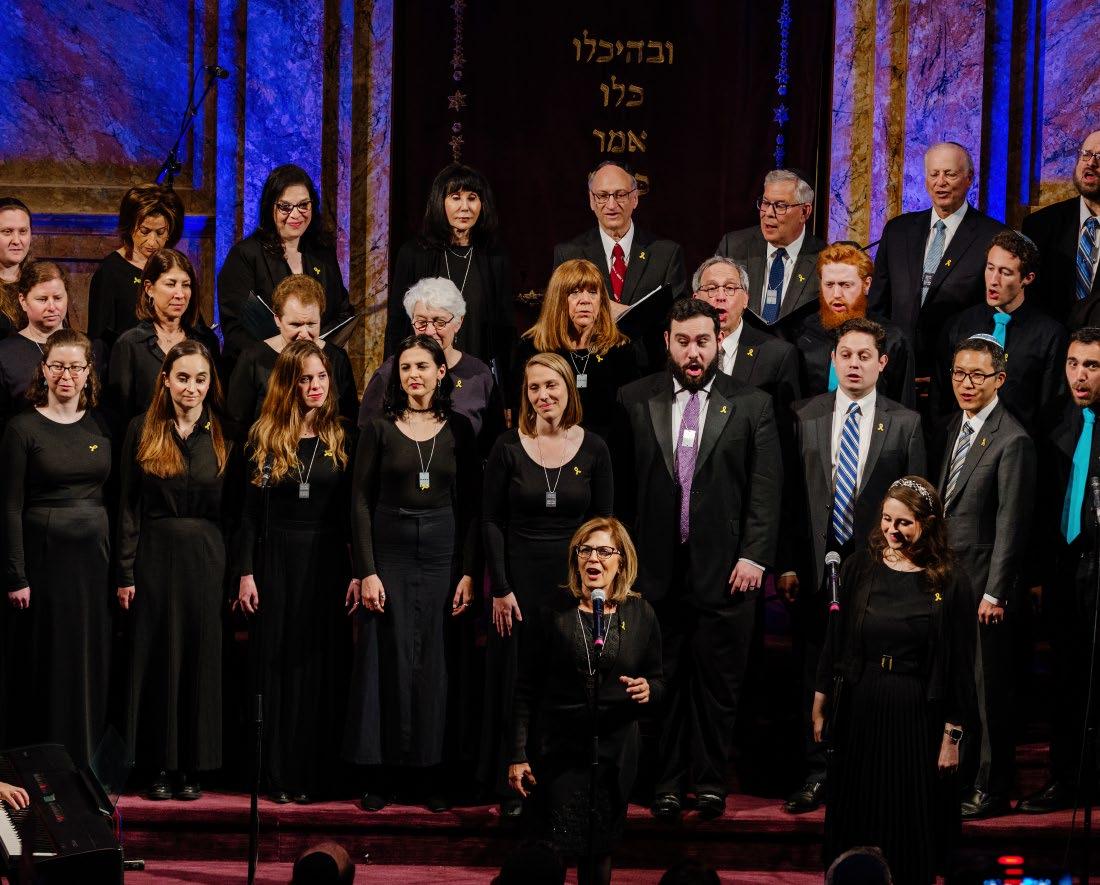

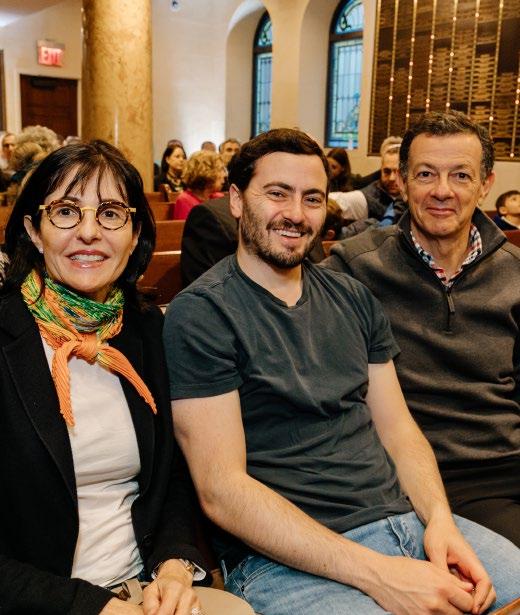
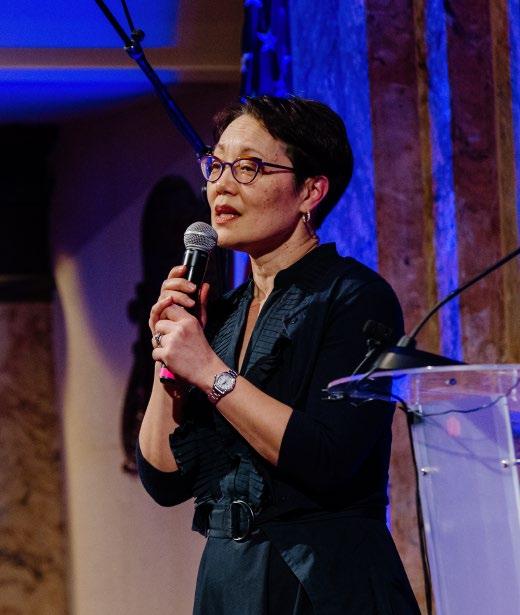
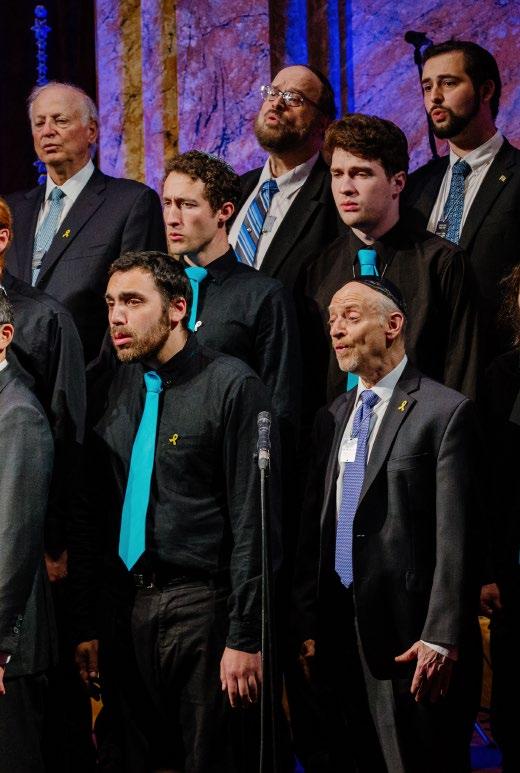

Rabbis Chaim Steinmetz, Angela Buchdahl, Elliot Cosgrove, and David Ingber delivered heartfelt messages, honoring the memory of those who made the ultimate sacrifices for the State of Israel while inspiring hope for a brighter future.
The moving musical performances and prayers led by Cantors Chaim Dovid Berson, Azi Schwartz, Mira Davis, and Mo Glazman, along with the Zamir Chorale and Zamir Noded choirs under the direction of Maestro Matthew Lazar, left a lasting impact on all who attended.
Shai Bernstein, an American-born Israeli soldier whose parents, Drs. Ricki & David Bernstein, taught a generation of Ramaz Upper School Students, reflected on the profound impact of returning to his unit following the tragic events of October 7th. Additionally, Moshe Lavi, who has family members still being held captive, shared his heartfelt plea for continued efforts until all the hostages in Gaza are brought home.
In the wake of the tragedy of October 7th, our community's coming together was a powerful show of our resilience and solidarity.
Am Yisrael Chai!



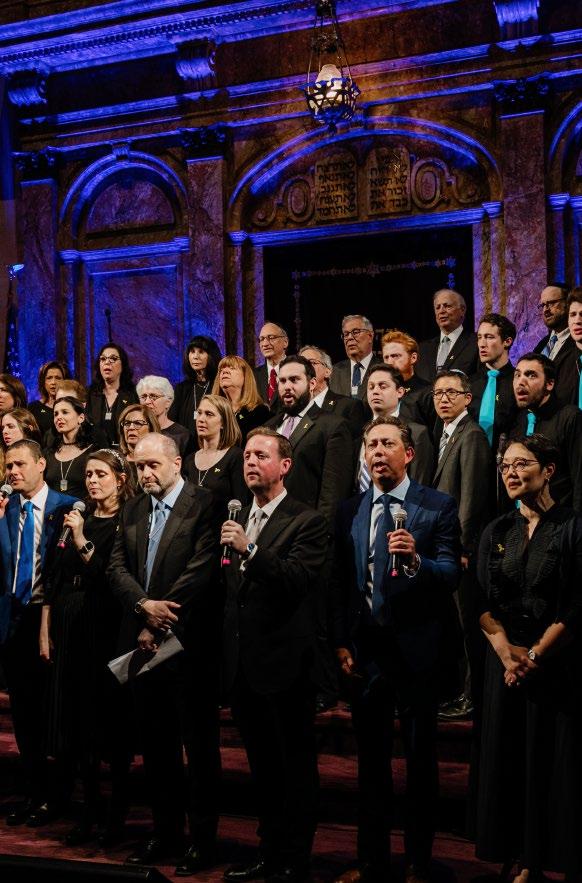
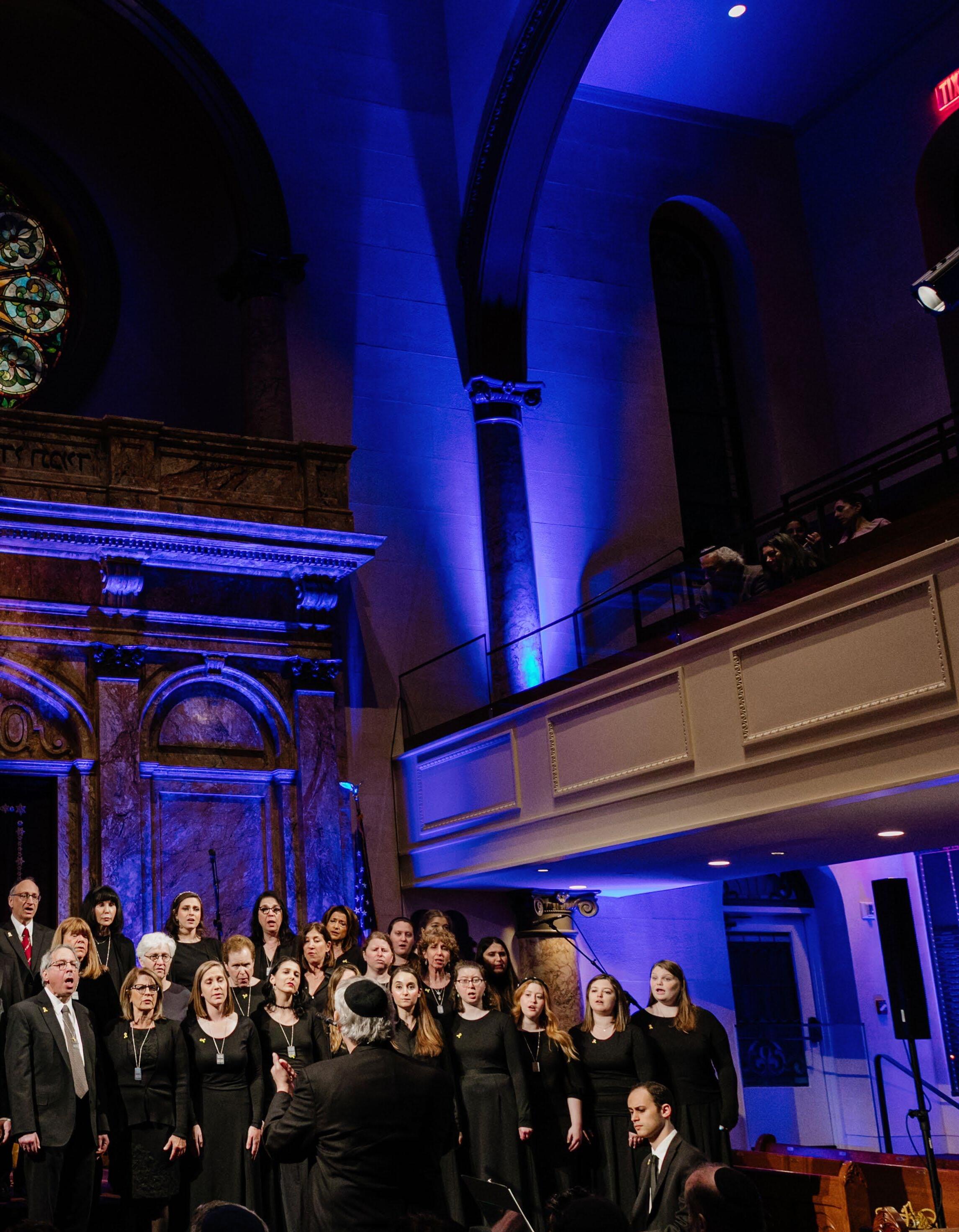



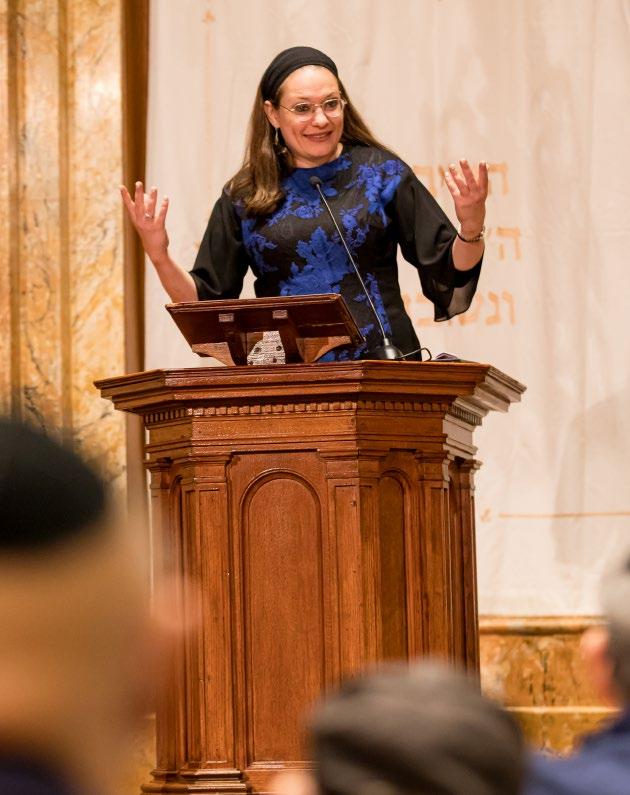
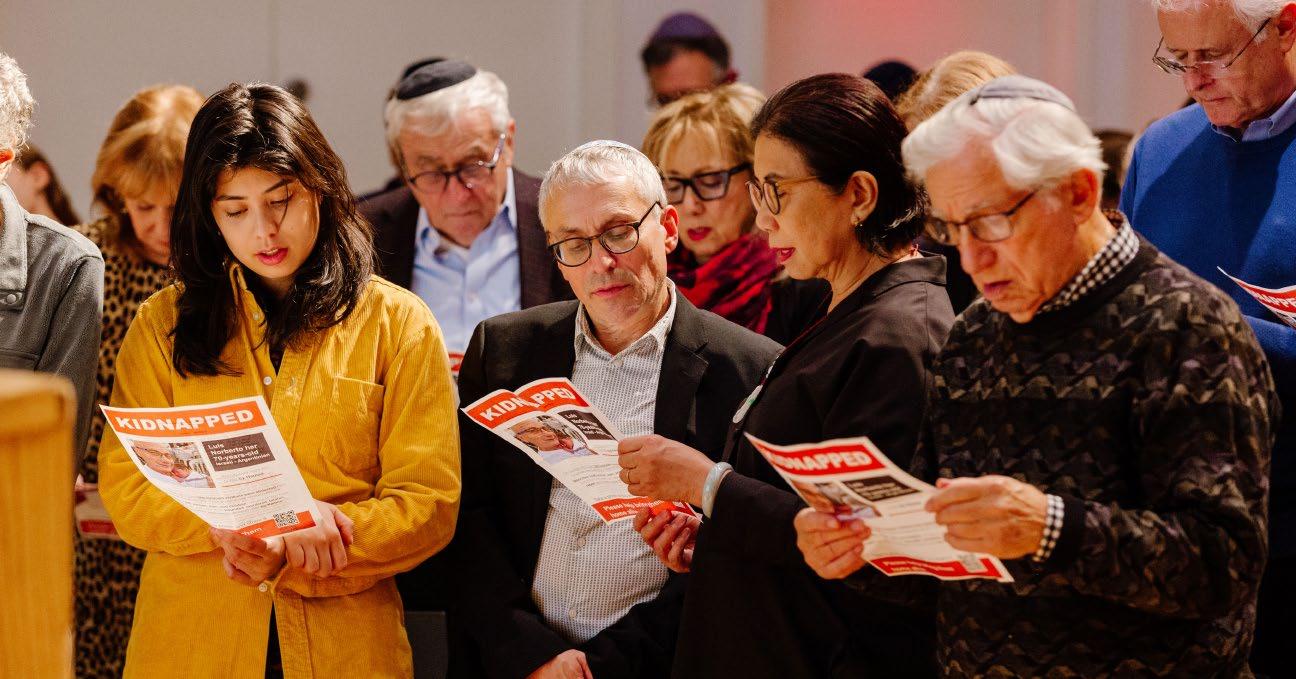
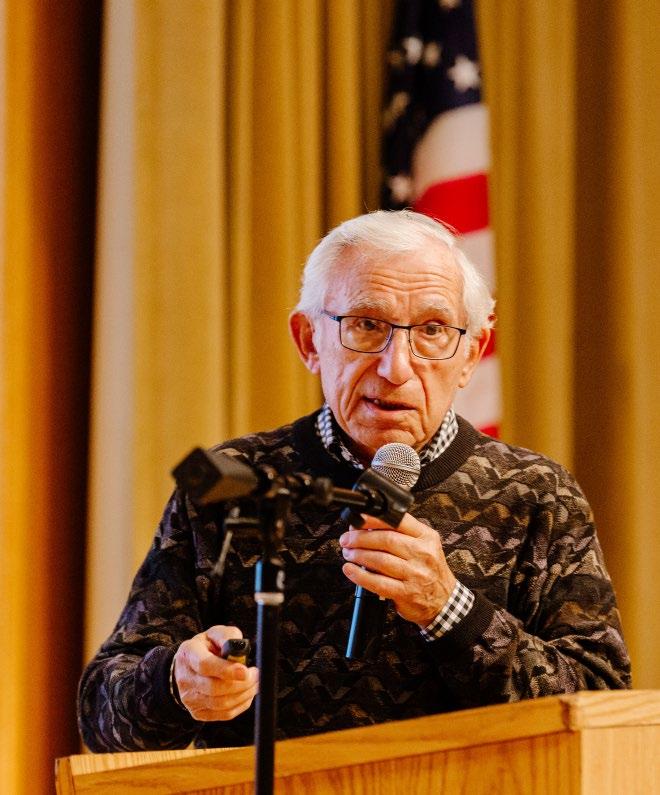
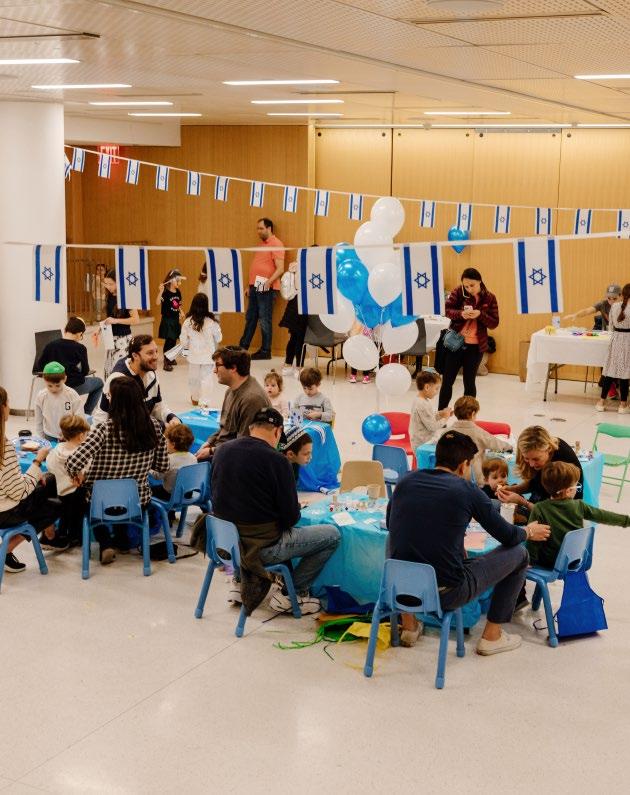
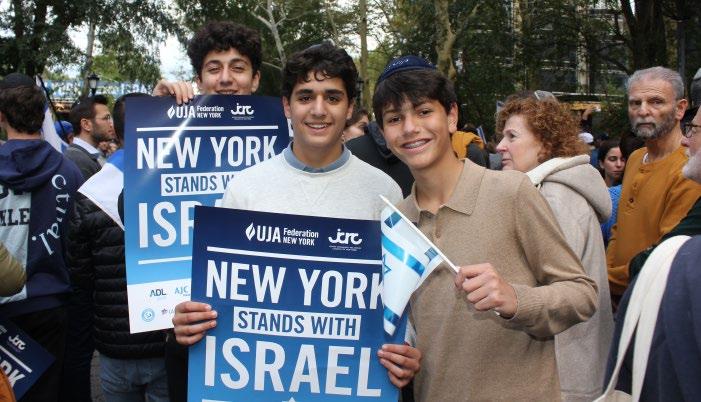


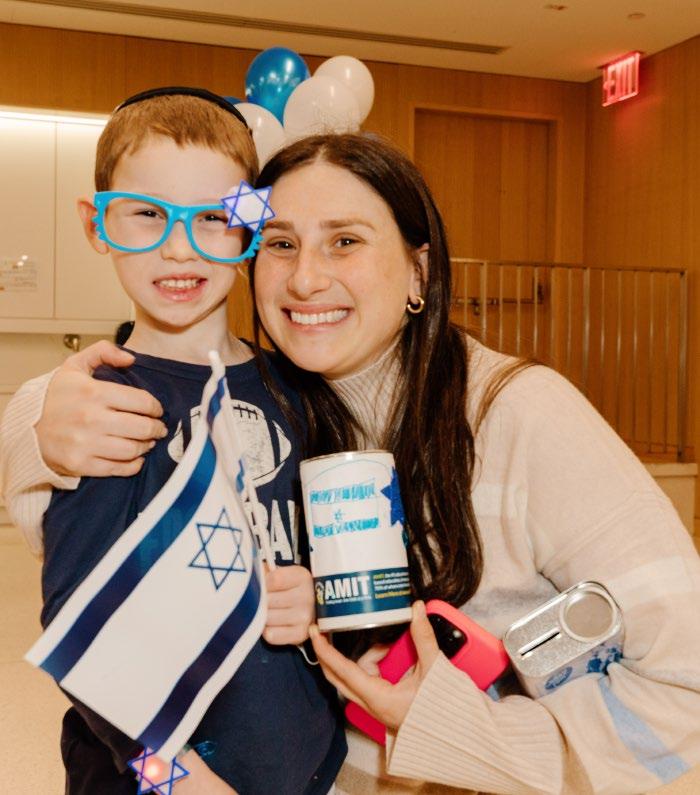



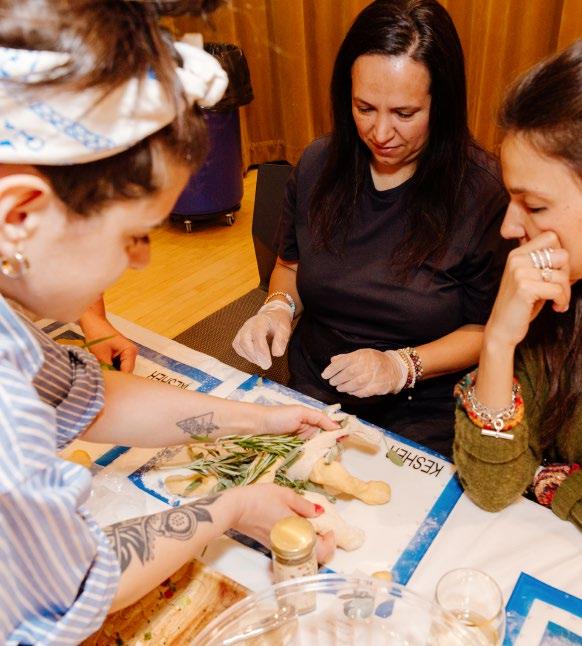


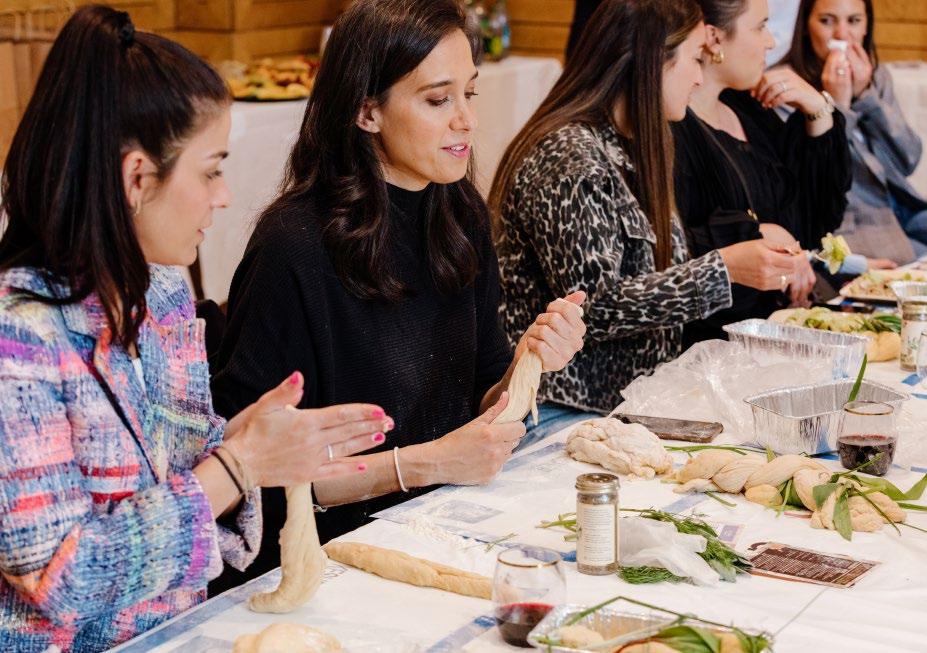

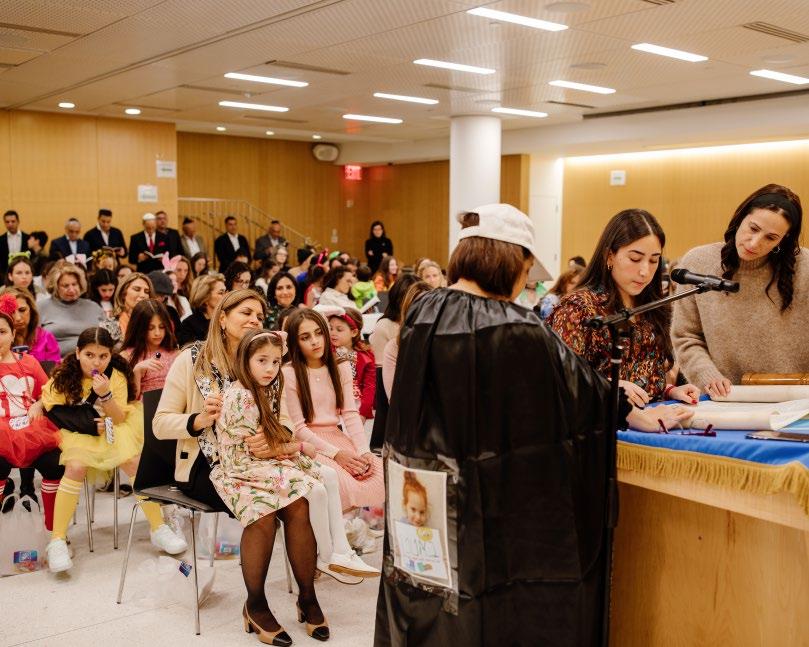



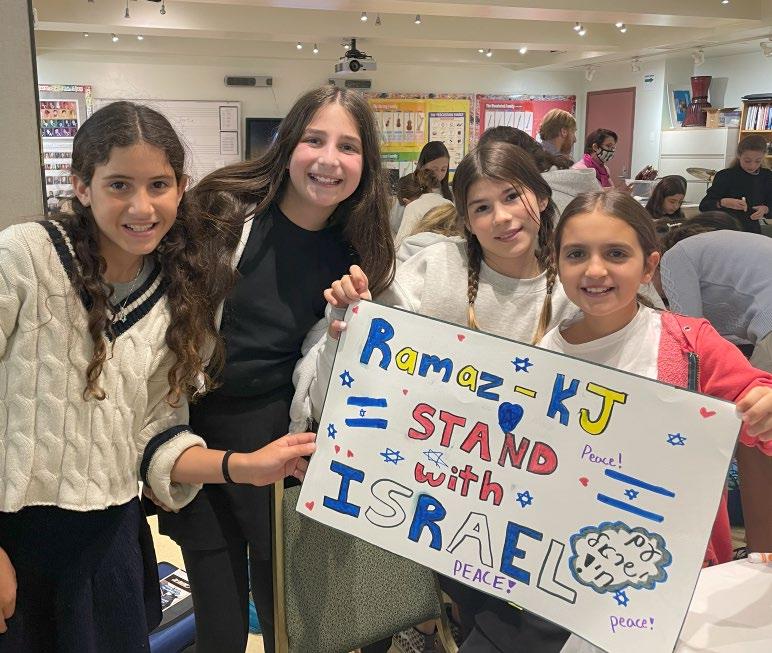
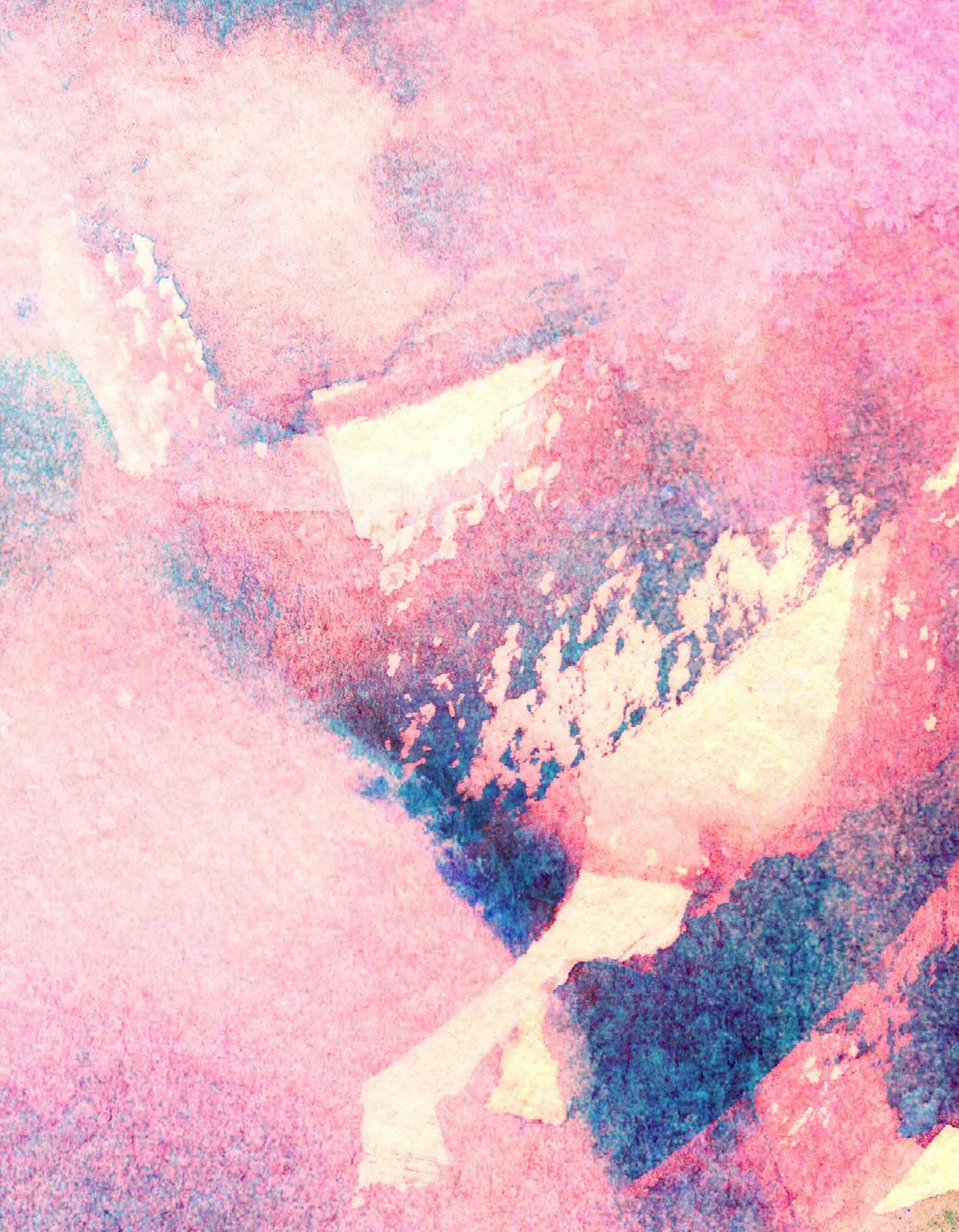

The holiday of Shavuot – which literally means “weeks” – is connected to Passover. From the second day of Passover, we count 49 days (7 weeks) to reach Shavuot. This corresponds to the 49 days the Israelites traveled from Egypt through the desert until they received the Torah on the 50th day on Mount Sinai. It also represents the journey from slavery to freedom. The Israelites were not fully free until they chose to accept the mandate of the Torah. Every year, we have the chance to re-enact this journey from the slavery of our own lives to the recognition that our own freedom comes from embracing our Jewishness.
Other commentaries have noticed that Passover is at the time of the barley harvest, but the wheat harvest only ripens at Shavuot. We also make this journey from consuming animal food (barley) to human food (wheat), or from our own animal instincts to our higher humanity, from immaturity to maturity, from physicality to spirituality. A final image – from Chassidic sources – is that of a courtship and engagement. The omer period is when the Jewish people were betrothed to God and Shavuot is the ceremony of the wedding. This adds to the element of passion and excitement of this holiday.
Shavuot is called “the time of the giving of our Torah” and the holiday commemorates this unique gift of love. The Torah reading for Shavuot is the Ten Commandments, which were given to us on this day as our ancestors stood before Mount Sinai. These incredibly important messages have profoundly changed the world. As we rise to listen to them, we can imagine the fear and excitement of watching God’s presence setting down upon Mount Sinai and Moshe ascending into the cloud to receive the two tablets. This is also an auspicious time to reaffirm our commitment to the Torah and to Torah learning by starting at whatever level we are on. Whether it is reading one section of the weekly parsha each week, going to a Torah class or starting a tractate of Talmud, we can all make a learning commitment to last us from Shavuot to Yom Kippur.
Passover has matzah and a seder. Sukkot has the Four Species and sukkahs. But Shavuot has no “unique customs” to go with it. Some suggest that this is because it is ALL about the Torah. In other words, we don’t need any extras, just the words of the Torah.
Contrary to popular belief, staying up all night on Shavuot is not to just pull an all-nighter but to study the Torah. We should try to spend less time socializing and more time learning something new and profound. In Kabbalistic thought, the night has a special potential for deep study and understanding; many kabbalists stay up all night frequently to pray and learn, tapping into this spiritual energy. It was the mystics of Tzfat who first started the custom in the 16th century of staying up all night.
Another reason we stay up all night is because the Jewish people overslept! Our ancestors were late Shavuot morning to get to the mountain. As a sort of apology or message that WE are eager to receive the Torah, we stay up all night, excited about the morning and unwilling to take the risk of not waking up. Some oppose the practice of staying up all night as it messes up your schedule



Some people think God commanded us to eat cheesecake on Shavuot and while it would be an amazing mitzvah to fulfill scrupulously, there actually is an ancient custom of eating dairy on Shavuot. Many reasons have been given – here are two:

a)The Torah is sometimes said to be as sweet as milk and honey, so the verse from Song of Songs that says “milk and honey are under your tongue” is interpreted to mean the sweetness of receiving and learning the Torah.
b)After the giving of the Torah, the laws of kosher were in full effect, but they did not have time (it was Shabbat) to prepare meat until later. Hence, their first meals as Torahobserving Jews were dairy meals. Interestingly, the custom is really only to eat one dairy meal over the holiday and – in order to celebrate the holiday properly – other meals should be meat.
It is customary to read about Ruth on this holiday, as it happened at this time of the year. Ruth was a Moabite woman who showed deep conviction in coming to Israel (with her mother-in-law Naomi) and becoming a Jewess. Since everyone “converted” to Judaism when they stood at Sinai and accepted the Torah, we relate to Ruth’s journey.
Among the honors due to Ruth’s greatness is that she was the forebear of King David and, ultimately, the Messiah.
ckj.org/shavuot
Compiled by Rabbi Daniel Kraus. For questions & comments, email Rabbi Feldman at rrf@ckj.org .
1. Shavuot is one day in Israel, but celebrated for two days in the Diaspora.
2. Shavuot, like all holidays, begins at night.
3. The candles are lit and the blessing is said of “l’hadlik ner shel yom tov.”
4. Like all holidays, one may cook and carry on Shavuot as long as the food is to be eaten on the same day of the festival as it is being cooked. One may not light a flame, but may transfer fire from an existing flame.
5. Both days of Shavuot are festival days, so anything else that is not done on Shabbat (except for 4 above) should not be done on Yom Tov. One exception is that some who does not shower on Shabbat may shower on Yom Tov.
6. There are synagogue services and Torah readings on both days of Shavuot. Festival meals are eaten as on Shabbat.
7. The special insertion of ya’aleh v’yavo is added in birkat hamazon. The amida (silent devotion) is a special one for festivals.
8. Havdalah is made on Thurday night (June 13) at nightfall over a full cup of wine or important beverage. Spices and a flame are not used.
If you would like to know more about the Shavuot holiday, please consult these classic volumes:
1. To Be a Jew – by Donin
2. The Book of Our Heritage – by Kitov
They will discuss topics such as:
a) the three days of encirclement
b) the poem akdamut
c) the two special loaves
d) the custom of spreading grass and flowers in the synagogue, and more.








To Receive Twenty-first Annual Judith Kaufman Hurwich Keter Torah Award On Shavuot
The Officers and Executive Committee of the Congregation are pleased to announce that the Twenty First Annual Judith Kaufman Hurwich Keter Torah Award will be presented to Robyn Barsky and Ariel Stern on the second day of Shavuot, June 13, 2024. The practice of conferring such an award is to appropriately recognize women in our congregation on the holiday when we celebrate the lives of two great Jewish heroines, Naomi and Ruth. It offers us an opportunity, as part of a religious ceremony, to express our appreciation for the services rendered to our community by women.
The award is named in memory of Judith Kaufman Hurwich, daughter of Rita and Benjamin Kaufman, of blessed memory, mother of our former members - yibadlu l’chaim tovim - Meryl Jaffe and Adam Hurwich, and grandmother of three former Ramaz students: Talia, Leah, and Zev Hurwich. Her family continues her tradition of fostering opportunities for women to study Torah.

Robyn “accidentally” discovered the beauty of Torah as a World Maccabiah Games lay leader seeking to learn enough about Judaism to convince young Jewish athletes to marry Jews. In the midst of building a successful career in the sports world, having already worked on the World Cup and Olympics in her 20s, Robyn pivoted towards deploying her skills in the Jewish world as the COO of the Jewish Funders Network while making up the formal Jewish education she never had.
Robyn entered the KJ Beginner’s program led by George Rohr and Rabbi Yitz Motechin and quickly found a community of fellow travelers who were spiritually nourished and supported by committed lay leaders, including Steve Rudolph, Marty Kaufman and David Lobel. She also attributes her growth in observance to the generous KJ families who opened their homes and the many classes in which she participated.
Exactly 20 years ago this month, Robyn married Ira Ziff in KJ’s Main Sanctuary and a few years later answered Rabbi Lookstein’s call for volunteers at the outset of the 2008 financial crisis. Along with several KJ members, Robyn & Ira helped re-ignite the KJ Ramaz Career Initiative, conducting workshops, writing resumes, prepping for interviews, making introductions and providing career guidance to community members in career transition and distress. These efforts continue behind the scenes to this day.
In 2009, Robyn wanted to share her passion for Torah learning with others, so she first took the pulpit following the KJ Intermediate minyan every Shabbat to teach Pirkei Avot. Then she started a Shabbat afternoon women’s Torah class in her home in 2013 which has impacted and influenced so many in the KJB community. Beyond the many classic texts covered, the space has become a coveted venue for women from 20 to 70 to foster and deepen their connection to their Judaism and build a caring community who has together experienced many lifecycle events.
Over the years, Robyn has been a devoted member of the KJB community where her contributions are many. She can often be found at the Kiddush creating new connections and strengthening old ones and hosting community members for Shabbat & Yom Tov meals and Sheva Brachot. She has also been the driving force and coordinator of the robust welcoming committee that is such an integral component of the Beginner’s High Holiday experience.
Recently, Robyn was tapped to serve as a KJ Trustee and Officer and is most proud of her contribution as Co-Chair (with Nicole Agus) of the “Returning to KJ Think Tank” that developed various initiatives to help
maintain members’ virtual connection to KJ during Covid and catalyze re-engagement in the community afterwards. One of her most rewarding projects during that time was collaborating with Chazan Berson to produce the Welcome Home video series and Rabbi Lookstein’s 90th Birthday tribute video.
Robyn is a partner with Ira in his Executive Search firm while she maintains a robust Executive Career Coaching practice, where she helps mid-senior level professionals actualize their career aspirations and parents who want to get their kids “off their payroll.” Robyn is dedicating the Keter Torah Award to her mother Corrine Barsky, a’h, who instilled in her the values of charity, hospitality, and lifetime learning.

Ariel Stern was born and raised in Brooklyn, NY. She is married to Jonathan Stern and the mother of four beautiful children- Maurice, Celine, Paula, and Louis. The older three currently attend Ramaz Lower School and their youngest will be joining the


Tuesday / June 18 / 8:15 am
“Our People and Our Family Since 10/7: Tragedy and Hope”

Featuring
Rabbi Doron Perez
Rabbi Doron Perez is the executive chairman of the World Mizrachi movement.
On October 7th, his son Daniel was in a tank crew that fought valiantly against the Hamas terrorists. He was taken by Hamas, and was declared dead on March 18th.

SHABBAT SHELACH / JUNE 29
Rabbi Yonatan Udren

Featuring
Rabbi Yonatan Udren, co-director of the RRG Beit Midrash at Hebrew University.
Morning Services & Sermon
9:00 am - “On Faith and the Precious Vision of Calev and Rabbi Akiva”
Afternoon Shiur
7:05 pm - “When To Stand Strong, and When to Bend: Rabbi Elazar, a Very Ugly Man, and the Challenge of Jewish Sovereignty”
Evening Services followed by Seudah Shlishit
8:05 pm - “The Rebbe Who Loved Machloket: Rebbe Nachman of Breslov’s Embrace of Dispute”
Rabbi Yonatan Udren serves as the co-director of the RRG Beit Midrash at the Hebrew University. Their main program, called Torah Café, provides interactive text learning, Shabbat meals, and a vibrant Jewish community for hundreds of overseas students across Jerusalem. Rabbi Udren is originally from Coral Springs, Florida, and lives in Beit El with his wife Dena and their five children.


Eden Brody
Mazal Tov to Lauren Novick Brody and Justin Brody upon the Bat Mitzvah of their daughter, Eden. Mazel
Tov as well to Eden’s sister, Lily, Eden’s great grandfather, Jack Belz, and to Eden’s grandparents, Keith and Louise Novick and Dennis and Adrienne Brody.
Congregation Kehilath Jeshurun warmly welcomes the following new members who joined the Congregation between the printing of the last Bulletin, April 12, and this Bulletin, which went to press on June 5:
Heidi and Jeffrey Abraham
Sarah and Michael Apfelbaum Alon Harnoy
Sara & Jeremy Hoffman
Dr. Alisa Kasachkoff
Kelly Schwab and Jason Kroll
Mattia Malchiodi
Drs. Dorin and Daniel Roth
Amy Lewis and David Roumani
Raquela and Avi Adelsberg upon the birth of a son, Teddy Beau (Bentzion).
Nicole and Tzvi Ausubel upon the birth of a daughter, Audrey Caroline (Orli Paz).
Shira and Dr. Larry Baruch upon the birth of a granddaughter, Tzirel (named for Larry's mother, Gladys Baruch z"l, a beloved KJ member), born to their children Chana and Yosef Chaim Baruch. Mazal Tov as well to delighted greatgrandparents, Audrey and Rabbi Haskel Lookstein.
Paula Etra and Tova & David Cooper upon the birth of a granddaughter, Lily Blanche, born to their children, Jonathan Etra and Sade Cooper. Mazal tov as well to big brother Avery.
Jan and Dr. Daniel Fenster upon the birth of a grandson, Mikael Meron, born to their children, Avital and Zach Fenster.
Rose Gerszberg upon the birth of a grandson, Shabsai Refael Yehuda, born to her children, Adinah Wieder and Jonathan Gerszberg.
Vanessa and Noam Haberman upon the birth of a son, Liam Dov Chen, baby brother to Dean Joseph.
Lexie and Joseph Kahn upon the birth of a daughter, Emmanuelle Salome (Emanuelle Shalom). Mazal Tov as well to delighted KJ grandparents, Judy and Dr. Hirshel Kahn.
Debbie and Dr. Shelly Senders upon the birth of a grandson born to their children, Susie and Hart Goldhar of Toronto. Mazal Tov as well to the baby’s older siblings, Nina and Ezri, and to the KJ great-grandparents, Audrey and Rabbi Haskel Lookstein.
Susan Goldberg Shipper & David Shipper upon the birth of a great granddaughter, Chaya, born to their grandchildren Esther & Avi Cavalier of Far Rockaway. Mazal Tov also to the proud grandparents Melissa & Joey Cavalier and Devorah & Dovid Freedman.
Adrian & KJ Executive Director Leonard Silverman upon their becoming first-time grandparents with the birth of a granddaughter, Livia Aviv, born to their children Ariana & Jonathan Silverman. Mazal tov as well to the proud KJ great grandparents, Donna & Arthur Silverman.
Dr. Phyllis & Mark Speiser upon the birth of a grandson, Ari Naftali (Ari Maurice) Garmaise, born to their children Shoshana Speiser and Jacob Garmaise.
Barbara Sandberg & Steven Springer and Sheila & Rabbi Herbie Frisch of Englewood, upon the birth of a granddaughter, Daniella Morgan (Dvora Meira), born to their children Samantha Springer and Jeremy Frisch. Mazal Tov as well to great grandmother Annette Sandberg.
Pasha and Ari Stein upon the birth of a daughter, Mille Rose (Millie Vered). Mazal Tov as well to delighted KJ grandparents, Jane and Ishaia Gol.
Anna & David Tykocinski upon the birth of a son, Theo (Tuvia Daniel), brother to Lily and Perry. Mazal Tov as well to the proud grandparents, Mark & Judy Tykocinski and Dean Adler & Susanna Lachs Adler, and to great grand Aunt and Uncle, Audrey & Rabbi Haskel Lookstein.
Gail Suchman and Dr. Jerry Zimmerman upon the birth of a grandson born to their children, Molly and Danny Arenson.
May these children grow up in the finest tradition of Torah, chupah, & maasim tovim.
Bnei Mitzvah
Rosalie and Harry Kleinhaus upon the Bat Mitzvah of their granddaughter, Maya Yetta Wechsler, daughter of Elissa & Daniel Wechsler.
ENGAGEMENTS - Mazal tov to
Dr. Taryn Fishman and David Bolnick upon the engagement of their daughter, Sarah, to Tom Moriarty, son of Elizabeth Philipp and Pat Moriarty of the Upper East Side.
Karen and Dr. Allan Gibofsky upon the engagement of their daughter, Laura Aimee (Ramaz ’04), to Michael Weil, son of Bena and Steven (A’H) Weil of Fair Lawn, NJ.
Rena and Scott Hoffman upon the engagement of their daughter, Caroline, to George Malkin, son of Shelly and Tony Malkin. Mazal Tov as well to Caroline’s KJ grandmother, Ann Sterman.
Evelyn and Salomon Sassoon upon the engagement of their daughter, Lily Adina, to Daniel Aaron Levine, son of Susana and Jack Levine of Miami, Florida.
Susan Goldberg Shipper & David Shipper upon the engagement of their granddaughter, Shifra Kutner of Lawrence, to Yitzi From of Far Rockaway.
May their weddings take place in happiness and blessing.
Jennifer & Saul Burian and Micheal Gross upon the marriage of their daughter, Lauren Gross, to Ethan Lasko of Hollywood, Florida, son of Ellen & Jon Lasko.
Orrin and Dr. Carolyn Feingold upon the marriage of their daughter, Talia, to Yehuda Taragin, son of Rabbi Reuven and Rabbanit Shani Taragin of Alon Shvut. Mazal Tov also to the overjoyed KJ grandfather, Dr. Leonard Feingold.
Dr. Jennifer & Michael Kaplan upon the marriage of their daughter, Melissa, to Daniel Rosenblatt, son of Drs. Kathleen Halton and Marc Rosenblatt of Greenwich, CT.
Sheila and Dr. Wally Lehman upon the marriage of their grandson, Dr. Jonah Klapholz son of Dr Marjorie Lehman
and Dr. Ari Klapholz, to Dr. Shoshana Zenilman, daughter of Dr. Michael and Marilyn Zenilman of Lawrence, N.Y.
Aliza & Aaron Menche upon the upcoming marriage of their daughter, Adi (Ramaz ’16) to Itay Cohen of TelAviv. Adi, who made Aliyah after Ramaz graduation, met Itay during her service in the IDF. Mazal Tov as well to Adi’s proud grandparents, Ann Menche, and Sanford and Miriam Goldhaber.
Susan and Scott Shay upon the marriage of their son, Benjamin, to Alyssa Kutner, daughter of Cindy & Lee (z’’l) Kutner of Denver, Colorado.
Susie and Jay Spievack upon the marriage of their son, Tani, to Hannah Laifer, daughter of Yael and Alan Laifer of New Rochelle, NY. Mazal Tov as well to the proud grandparents Ellen and Dr. Frank Laifer, Gabriella Major and Barbara Spievack.
May the newlywed couples be blessed to build homes faithful to the traditions of the Jewish people.
Brenda and Albert Bernstein upon their granddaughter, Julianna Cohen, daughter of Elana and Dr. Daniel Storch of Phoenix Arizona, receiving the Columbia/Barnard Hillel Young Leadership Award.
Judy & David Lobel upon David being chosen to receive the Jack Nash Leadership Award at the June 17 UJA Private Equity Division’s Recognition Event at The Mandarin Oriental hotel. Click here to honor David and support this worthy charity: https://www.ujafedny.org/event/ checkout/tickets/private-equity-recognition-event
Men’s Club President Dr. Mark Meirowitz upon being the Grand Marshall at the SUNY Maritime College graduation.
Rabbi Chaim Steinmetz who was appointed by Mayor Eric Adams to New York’s Charter Revision Commission.
Rabbi Chaim Steinmetz upon receiving the 2024 Simon Rockower Award for Excellence in Jewish Journalism for "Excellence in Writing about the War in Israel: News and Feature Writing" (2nd place) for his article in The Jewish Journal "A Letter from Israel; It's okay to Start Dreaming.”
Congratulations to
Rosie and Dr. Mark Friedman upon the graduation of their granddaughter, Leah Sophia Yehaskel, with Honors, from HAFTR High School in Cedarhurst, NY. Congratulations to her parents, Davida and Marc Yehaskel of Great Neck, NY.
Rosie and Dr. Mark Friedman upon the graduation of their grandson, Shmuel Avigdor Tuvia Fine, with Honors, from DRS High School. Congratulations to his parents, Morah Ariela and Rabbi Jeremy Fine, of Woodmere, NY.
Bonnie and Isaac Pollak upon (i) their son, Ovadya, receiving his Doctorate in Physical Therapy from Columbia College of Physicians and Surgeons, and (ii) their daughter, Elianna (Pollak) Mitnick, receiving her Doctorate in Tanakh-Midrash and Thought from the Jewish Theological Seminary.
Suzy and Joseph Sokol upon the graduation of their daughter, Yasmin, from NYU.
Deborah Cooper upon the passing of her sister, Elizabeth Friedman.
Stephanie Failla upon the passing of her mother, Dorothy K. Failla.
Randi Hefter upon the passing of her father, Zalman (“Zeke”) Alenick.
Melvin Heller and Jack Heller upon the passing of their wife and mother, Helen Propp Heller.
Dr. Ronit Kahanowicz upon the passing of her father, Dr. Zwi Kahanowicz.
Eli Ziskind upon the passing of his father, Avraham Ziskind.
in memoriam
tobette feinberg
Toby Feinberg died quite suddenly in her 90s, shortly after Pesach. She was a wonderful member of KJ, a regular worshipper on Shabbat and Yom Tov, a devotee of our weekly Lunch-and-Learn program for seniors, and a full participant in Sisterhood and other activities until limited mobility made her attendance difficult.
She was a consistently generous contributor to our Annual Synagogue Appeal and to our Benevolent Fund campaigns, giving with a full heart and an open hand. Her face was dominated by a warm smile with which she greeted everyone. She loved KJ and, in turn, she was loved by KJ.
June 14-15 Nasso 8:10 pm 6:45 pm 8:05 pm 9:13 pm
June 21-22 Baha’alotcha 8:12 pm 6:45 pm 8:05 pm 9:15 pm
June 28-29 Shabbat Mevarchim / Sh’lach 8:13 pm 6:45 pm 8:05 pm 9:15 pm
July 5-6 Rosh Chodesh Tamuz / Korach 8:12
July 12-13 Chukat 8:09 pm 6:45 pm 8:00 pm 9:10 pm
July 19-20 Balak 8:04 pm 6:45 pm 7:55 pm 9:04 pm
July 26-27 Pinchas 7:58 pm 6:45 pm 7:50 pm 8:57 pm
August 2-3 Shabbat Mevarchim Matot-Masei 7:51 pm 6:45 pm
August 9–10 Shabbat Hazon / Devarim 7:42 pm 6:45 pm 7:30 pm 8:39 pm
August 16-17 Shabbat Nachamu / Vaetchanan 7:33 pm 6:45 pm 7:20 pm 8:29 pm
August 23-24 Eikev 7:23 pm 6:45 pm 7:10 pm 8:18 pm
August 30-31 Shabbat Mevarchim / Re’eh 7:12 pm 6:45 pm 7:00 pm 8:06 pm
Creative Direction by Esther Feierman, Graphic Design by Cylosoft and Articles 1-3 graphics by Netanya Stahl-Amoon 6:45 PM March 30 - September 14

DAtes to remember
Wednesday and Thursday, June 12-13
Shavuot, see schedule on page 22
Wednesday, June 19 Juneteenth 8:30 AM Morning Services
Thursday, July 4 Independence Day 8:30 AM Morning Services
Shabbat and Sunday, July 6 -7 Rosh Chodesh Tammuz
Tuesday, July 23 Fast of the 17th of Tammuz Fast begins 4:33 AM 6:50 AM Morning Services 7:50 PM Evening Services Fast concludes 8:54 PM
Monday, August 5
Rosh Chodesh Av7:00 AM Morning Services
Monday and Tuesday, August 12-13 Tisha b’Av Fast begins 7:57 PM Evening Services 7:55 PM 7:00 AM Morning Services 7:30 PM Evening Services Fast concludes 8:28 PM
Monday, September 2 Labor Day 8:30 AM Morning Services
Tuesday and Wednesday, September 3-4 Rosh Chodesh Elul 7:00 AM Morning Services